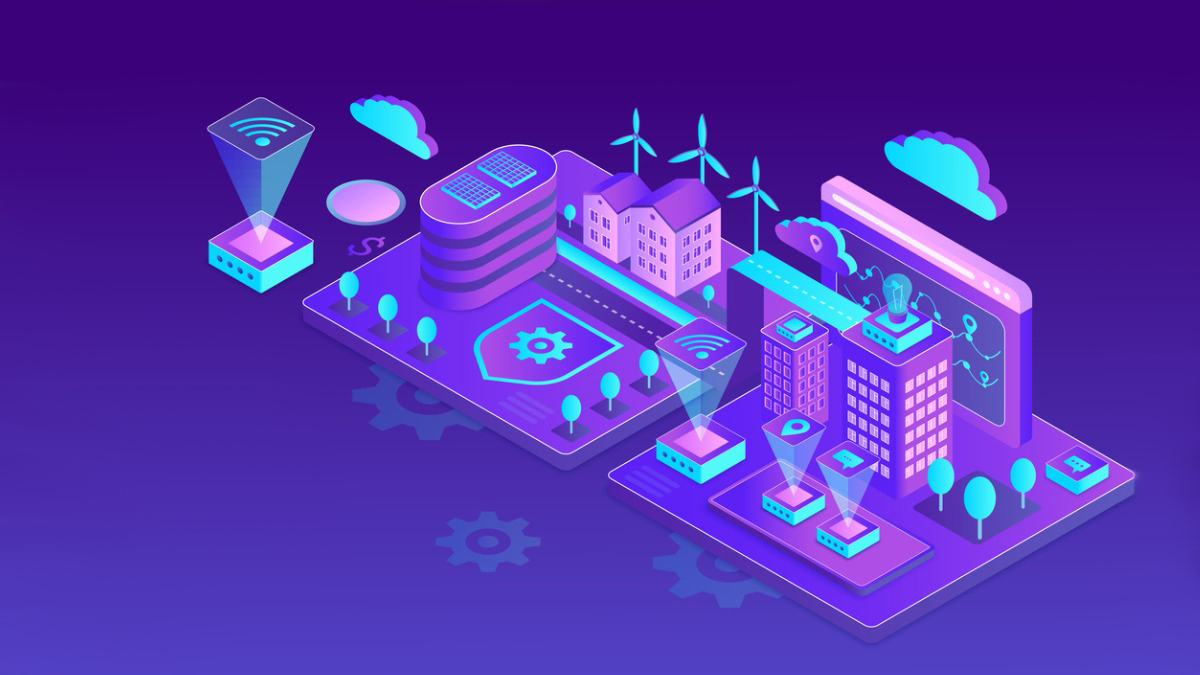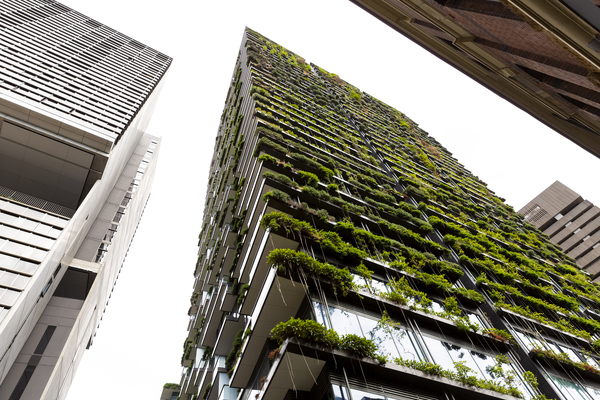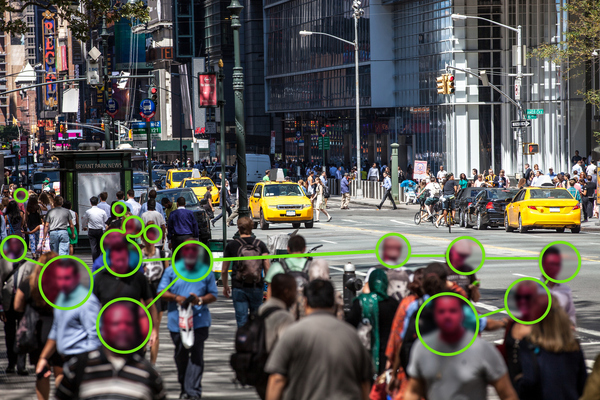Move over silos: enter human perspective, open source tech, collaboration and open standards
Sponsored by FIWARE Foundation
Before you get to the technology of smart cities, you have to get organisations and citizens’ mindset right
In one context or another, you will probably have a thing or two to say about smart cities. The movement has been a topic of discussion for quite some time on both ends of the spectrum as the use of sensors and Internet of Things (IoT) have been applied to the infrastructure of nearly all types of cities. Large parts of such infrastructure aren’t truly ‘smart’ yet, meaning that, from a technological standpoint, there’s room for improvement.
Especially in the wake of a global pandemic, the need for tech-smart, resilient, cost-effective and sustainable solutions – be it centred around smart storage solutions, building and manufacturing automation or intelligent airports – has significantly sped up. From check-in to autonomous cleaning robots, what we see in many airports worldwide speaks volumes about the data science innovation currently available.
Now more than ever, leaders – on a national, federal and local level – are looking into building more intelligent infrastructure and how citizens fit into such a strategy. From how we move around a city or design and experience buildings to the ways in which goods are moved worldwide, such issues are being addressed from many different perspectives.
At FIWARE Foundation, guiding cities and organizations toward innovative approaches to a greener, smarter, more sustainable and resilient tomorrow is at the forefront of our mission. To that end, we rely on a pool of thousands of talented and committed individuals and organisations that, together, make up our thriving community.
The stories you will read below have been put together by FIWARE Community members Jim Craig and Leslie Hawthorn (Red Hat), Francesca Nafissi (WiseTown) and Andrea Gómez and Antonio Jara (HOPU), alongside Val De Oliveira (FIWARE Foundation). They will take readers on a compelling journey of how they are delivering solutions in a faster, easier, interoperable and cost-effective way that avoids vendor lock-in scenarios and follows an open source approach.
From the need for human-centred solutions and breaking down silos to the effects of urban heat islands, these stories offer a unique and concise account of how open source tech and open standards are the beacon and the catalyst of future innovation.
Breaking down the silos
FIWARE has developed a four-step process for implementing smart cities, the first being to remove the silos. Easy: call a meeting with department heads and tell them to work together. Job done.
Civic technologies are the fundamentals of WiseTown – a FIWARE Foundation Gold Member – for effective data management and analysis as well as supporting the development of efficient relationships and communications between public administrations, citizens, and companies.
Creating authentic participatory processes is increasingly important within our cities. For this reason, WiseTown, which recently won a South Europe Startup Award, has been supporting its data management and civic tech solutions with a vast and articulated training programme, the Civic Tech Academy. The goal of this ambitious programme is to provide adequate cultural and methodological preparation for the use of technologies in the context of participatory smart cities.
The academy caters mainly to government executives and civil servants, but also utility service providers and citizens themselves. Creating a widespread culture based on innovation, digitalisation and data management is a fundamental prerequisite to ensure that the strategies adopted at the technological level are truly effective.
It’s difficult to imagine a technological transfer without the understanding of technology and its uses. For this very reason, WiseTown’s academy allows us all to better perceive the real problems faced by innovation processes, creating space for debate, dialogue, and economic growth. It contains operational sessions with a strong practical purpose and cultural slant.
For more details on urban data and how WiseTown can help public administrations to explore the available opportunities new technologies offer for cities and communities, visit wise.town/civic-tech.
UHIs on smart cities: the Seville case
Seville, the capital of southern Spain’s Andalusia region, shares something with many other metropolitan cities worldwide: its temperature is on the rise, going from an average of 18.4 degrees in 1950 to 19.7 degrees lately due to global warming.
This impact is worse in built-up areas, where urban heat islands (UHIs) are generated. UHIs are warmer than their surrounding areas due to human activities and changes in the landscape impacting resource consumption (water and energy) across homes, businesses and public buildings. UHIs have a direct impact on urban health.
This is where Spanish-based HOPU - also a FIWARE Foundation Gold Member - can make a positive impact and lend a helping hand. The organisation empowers environmental innovation with AI, IoT and big data for environmental assessment, simplifying available data in a unique indicator that contextualises, models and forecasts the environment situation for informed decision-making.
HOPU has been working with Seville to identify UHIs through real-time monitoring, based on its own IoT air-quality devices and external datasets such as Copernicus, open data and much more. The use of AI, specifically long short-term memory (LSTM) networks based on recurrent neural networks (RNNs), helps us to understand the effects on cities’ behaviours, such as resource consumption. HOPU models UHIs for anomaly detection, prediction and mitigation actions.
The environmental conditions are co-related with the water and energy consumption datasets, focused on location intelligence capabilities that provide the geolocation and time series clustering to identify UHIs.
Following the FIWARE open source approach, HOPU manufactures IoT-based environmental monitoring devices called Smart Spots. These measure gases such as sulphur oxide and nitrogen oxide, detect toxic substances such as alcohol and volatile organic compounds (VOCs) and detect particulate matter (PM) to identify specific nanoparticles such as dust (PM10), pollens (PM10-PM40), pollutants (PM2.5) and viruses (<PM1).
Through the EDI incubation programme for big data startups and SMEs in Europe, HOPU explores this market with relevant data sources from big companies such as EMASESA, Seville’s water supply and sanitation company. Through the programme, HOPU is receiving mentoring to build an end-user driven tool that will be focused on the needs of utility suppliers, cities and
Finally, new collaborations are on HOPU’s roadmap to develop a service for UHIs and environmental analysis for Seville with city datasets, including Acciona I’mnovation, as part of the Lanzadera business accelerator and incubator programme.

Business Reporter Team
Most Viewed
23-29 Hendon Lane, London, N3 1RT
23-29 Hendon Lane, London, N3 1RT
020 8349 4363
© 2024, Lyonsdown Limited. Business Reporter® is a registered trademark of Lyonsdown Ltd. VAT registration number: 830519543
Join the Business Reporter community today and get access to all our newsletters, and our full library of talk show episodes
Join the Business Reporter community today and get access to all our newsletters, and our full library of talk show episodes







